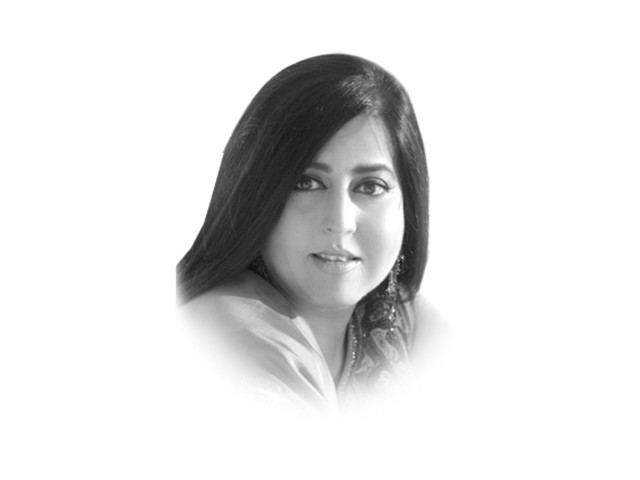Wedded to the past
Today, rather than take policy from Washington, we need to look at the region as the only way to peace.

Wedded to the past
To do that, it is important to look back in history and understand how we got here. It is also important to realise we are not alone. The 1970s saw the Cold War apparatus take its toll on many democratic and independent-minded states. It is no secret that the US busied itself with overthrowing democratically elected governments in the Third World, notably South and Central America. And their involvement in the coup against Mr Bhutto’s government in 1977 is part of Pakistani political lore. A systematic policy to break up Third World unity that had been forged between states was pursued. As a result, all these countries have suffered from decades of violence, death squads, disappearances resulting in a collapse of institutions and structures that make up a democratic state.
If we find similarities between other countries of the Third World and ourselves, then perhaps we need to look toward those countries and see how so many of them have managed to move out of the death squad paradigm. From what I have read, these countries had broad democratic social movements in the 1960s that began at the grassroots. They may have been forced underground or lay dormant for decades but when democracy returned, the foundations of these movements were there. They believed in decolonisation, in regionalism, they were ready to think outside the proverbial box. The Bank of the South was established only a year ago to benefit all Latin American countries and to free them from the protocols of the IMF and the World Bank. Education became a priority and with innovation and the use of indigenous tools there was, in some countries, a complete turn around of the education sector in a short nine years. In Bogota, Colombia, change came through the efforts of a mayor who realised that for there to be real social change the city had to work for all its inhabitants, not a select few.
Today, Pakistan continues to carry its colonial past. All our existing state structures are colonial, just look at the police and the manner in which they function. Or look at the bureaucracy and the military, both huge and unaccountable in different ways. They are testimony to the fact that top-down models do not work. The language of government is that of rulers and the ruled, the civil military establishment has exercised control over the functioning of the state — as a result we have weak institutions and little or no accountability.
Pakistan’s strong democratic social movement came in the 1970s. Zulfikar Ali Bhutto took his inspiration from the Third World; faced with a hostile neighbour he looked to the Islamic world to form a block bringing together leaders as diverse as Colonel Gaddafi of Libya and King Faisal of Saudi Arabia. It may not have worked but at the time it was thinking outside the paradigm. Today, rather than take policy from Washington, we need to look at the region as the only way to peace. We need to look at our indigenous traditions, our strengths and those of our neighbours. In doing so, we will surely find that there is a commonality of issues that is enough to bring our different agendas together. Our neighbours are India, Afghanistan and Iran and once we get over our India-phobia we will surely find that peace dividend called prosperity. Of course, it is not so simple but it is also not so difficult and the peace meetings must build themselves into movements for change.
Published in The Express Tribune, October 22nd, 2010.














COMMENTS
Comments are moderated and generally will be posted if they are on-topic and not abusive.
For more information, please see our Comments FAQ